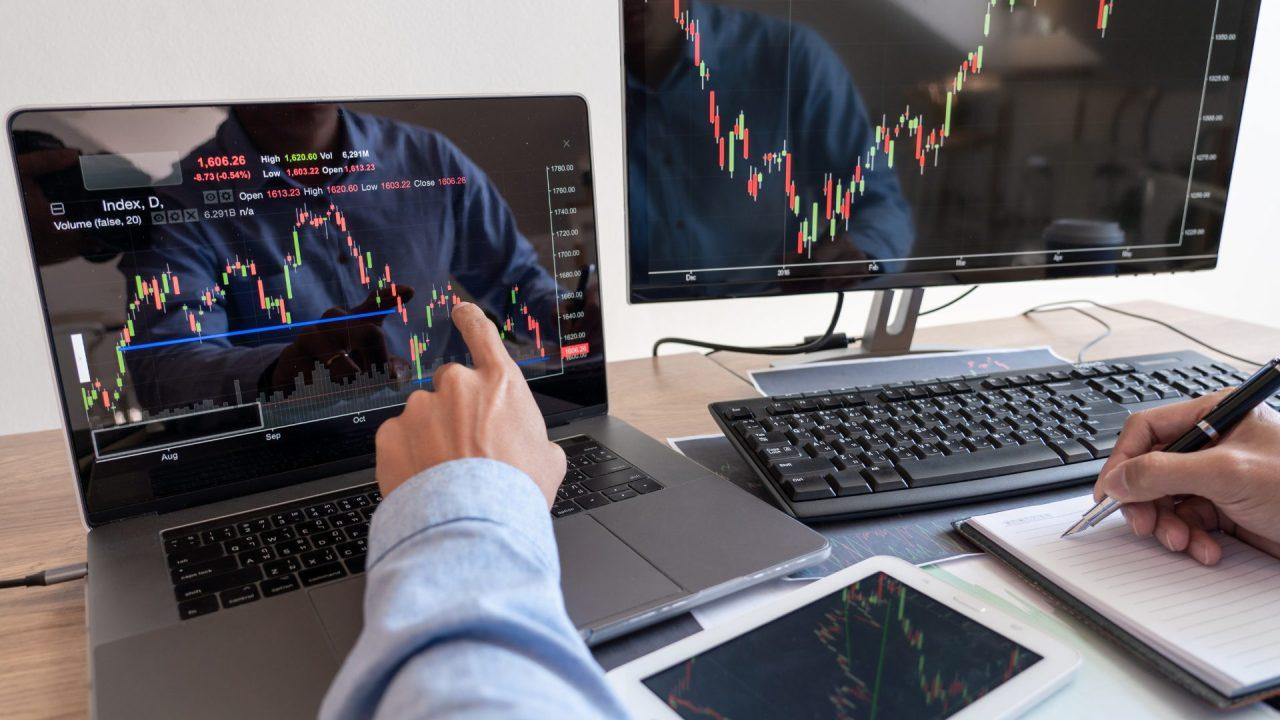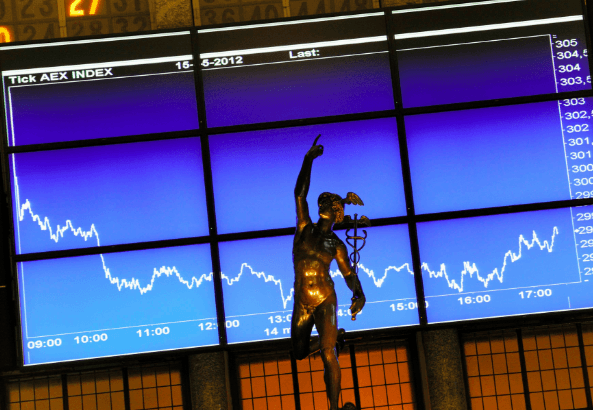
As humans, we all are prone to making wrong decisions due to certain emotional biases. Emotional bias is actually a situation where our thinking process gets highly influenced by the emotions that we feel at the moment. This emotional bias can easily overpower our ability to think rationally, and we might end up doing things in the heat of the moment despite all the facts and figures being against this course of action. This emotional bias can also happen in forex trading, so we often make wrong trading decisions, which can be costly mistakes for a trader.
In this article, you will learn about the 6 most common emotional biases that influence your trading decisions and some tips to avoid them.
1) Recency Bias – Recency bias is actually a memory bias where the most recent event tends to influence all our thoughts and decisions as we ignore other events that happened in the past. In forex trading, this recency bias is related to the result of your most recent trade. A classic example of this can be your urge to enter more trades just because you won the last trade. You only look at the result of your last trade while ignoring the analysis, which tells you not to enter more trades as the trend is losing strength. You still end up entering a trade hoping to make profits like the last trade.
It could also be related to a recent news event or recent trend that captures your attention. Sometimes, the historical data will contradict this event or information, but you simply refuse to take that into account as you are only looking at the now and here. Recency bias can have a negative impact on your trading decisions as you fail to look at the bigger picture. As a trader, you must be able to avoid such prejudice and make a sound decision without bias based on the recent outcomes of trade or events.
2) Fear-based Bias – Fear is an intense emotion, and it can have a significant impact on our thoughts and actions. Forex traders very commonly experience fear-based bias. Trading in the volatile currency market is inherently risky, and the uncertainty associated with the outcome of a trade can put a lot of pressure on people. The fear of making a wrong decision and losing money is always there for a trader. A rational amount of fear can protect us from unwanted losses as it encourages us to reconsider our decisions and think before taking action.
But sometimes, this fear becomes irrational as we tend to doubt our abilities and let go of good trading opportunities just because we are scared to take risks. But taking some risk is essential to make profits in trading. Hence, we must overcome this fear and replace it with rational thinking. Being afraid of losing will only stop you from growing as a trader. So, you can instead focus more on risk management and rely on logical calculations for trading decisions. Trading calculators are very handy for this purpose as they help you accurately determine different values used in trades.
3) Hindsight Bias – The hindsight bias is an emotional bias where people think that they have already predicted past events or tend to think that something that happened in the past was too predictable. They overestimate their prediction skills and get fixated on the techniques they use to anticipate a trade scenario or the most probable outcome of a trade. This type of bias traps you in a thinking pattern which limits your potential as a trader. If you want to recognise hindsight bias in yourself, you need to check if there is a voice in your head that says, I knew it would happen after every market event. One tip to avoid this bias is to think about different possibilities and be ready to face any situation that may arise.
4) News-based Bias- Many forex traders rely on fundamental analysis to make their trading decisions. Technical analysis only focuses on price movements and takes all the information needed for decision-making from price charts. However, fundamental analysis has a wider scope as it looks into economic data releases and global economic events that significantly impact currency prices. So, it also involves watching the news and keeping yourself updated on current affairs to prepare for any market situation that might arise after a news event. There are even strategies like news trading, where traders plan their trades around a news event to make profits from the volatility caused by impactful news.
However, too much of anything can be harmful in trading, and many traders develop this habit of being hooked to the news all the time. This fixation with news results in missing many good trading opportunities as they trust the news more than the price action seen on charts. Keeping yourself updated with news is helpful for trading, but you should not spend excessive time watching the news. So, you need to strike a balance here. You can limit your news intake by relying solely on the economic calendar on your trading platform.
5) Overconfidence Bias – Overconfidence bias is pretty common among experienced traders. Experienced traders are more prone to have this kind of bias as they are already aware of their knowledge and skills and strongly believe in their abilities. This overconfidence can also be related to a particular strategy that worked well in the past. A novice trader can also get affected by overconfidence bias after they record consecutive wins or make a good amount of profits in their initial phase. Being confident is good for a trader, but overconfidence is a big no in trading. It is important to determine a certain amount of profit that you intend to make in a day and stick to that. For this, traders can use a profit calculator, which helps them calculate the profit amount in their own currency. Knowing this number will keep their psychology in the right place and limit their losses.
An overconfident trader will make impulsive decisions and can also engage in overtrading due to the excitement. They tend to overlook the obvious facts and will even enter trades without enough planning or calculation just because they are confident with a particular trade setup that they come across. This puts them on the verge of emotional trading as they are not being driven by logic but only by the strong positive emotion they feel at the moment.
Now, there is also the opposite case where a trader lacks confidence in their own skills and strategy. They think they are not skilled enough to take big trades or simply don’t think their strategy is good enough to generate profits. They don’t believe in their own strategy and are often confused about what move they should make or get easily overwhelmed when they come across an ideal trade setup that goes in line with their strategy.
To overcome this bias, you need to assess your strategy’s viability and success rate with backtesting and forward testing. For backtesting, you can simply choose a trading platform like MT4 and make use of the backtesting feature to test your strategy on hypothetical trade scenarios using historical price data. The simple yet advanced trading software is an ideal place for backtesting and optimising your strategies in an effective manner.
Forward testing of strategies is done to test the working of a strategy in real-time market conditions. For this, you can open a demo trading account, as it allows you to place trades with virtual funds in real-time market conditions. When you trade with virtual funds, you don’t need to be fearful of losing money and demo account practice is also useful for polishing your trading skills and thereby enhancing your confidence as a trader. This boost in confidence will surely make the live trading process easier for a beginner.
6) Deer in the Headlights Syndrome – The Deer in the Headlights syndrome is not an emotional bias but the result of having many overwhelming emotions while trading. It is a situation where you become mentally numb or unable to think due to an excess amount of anxiety, excitement or fear. You become a deer who is shocked to see the headlights and stand there frozen without taking any action.
In forex trading, this can be described as an inability to make decisions as you get shocked by an unexpected event. This could also be a result of simply overthinking and over-analysing your trades. So, you just need to be prepared for the best as well as worst-case scenarios and stop being overly obsessed over the outcome of a trade.
Conclusion
To conclude, a forex trader needs to learn more about trading psychology to understand the effects of various emotional biases in trading and find practical techniques to avoid taking actions based on emotion. As a forex trader, your decisions and actions should be driven by logic and analysis, and emotional control is a must.
Tradersdna is a leading digital and social media platform for traders and investors. Tradersdna offers premiere resources for trading and investing education, digital resources for personal finance, market analysis and free trading guides. More about TradersDNA Features: What Does It Take to Become an Aggressive Trader? | Everything You Need to Know About White Label Trading Software | Advantages of Automated Forex Trading












































